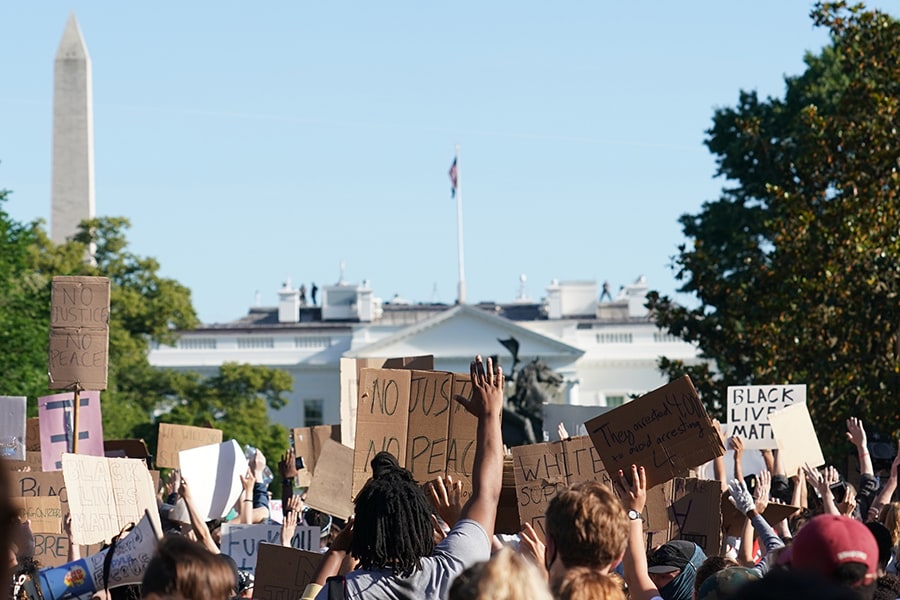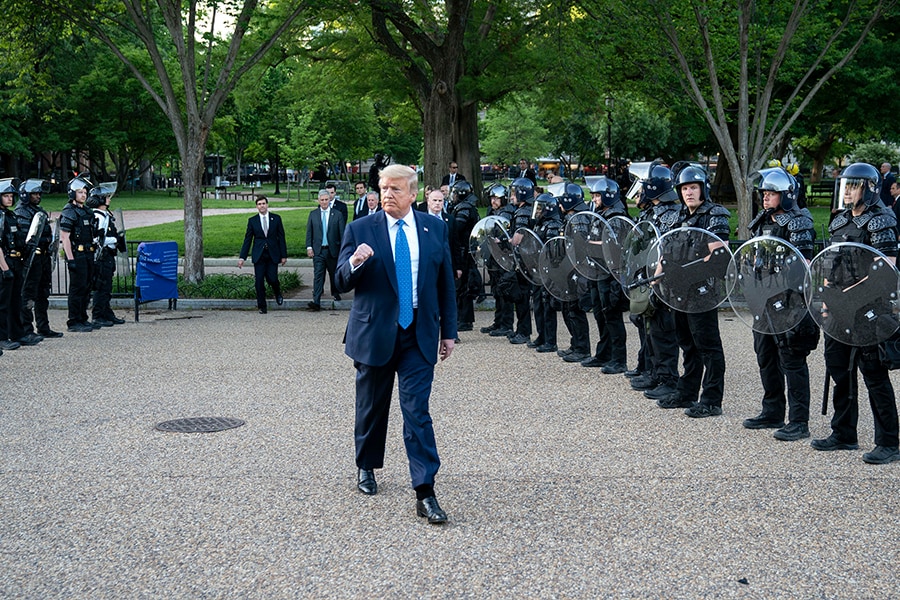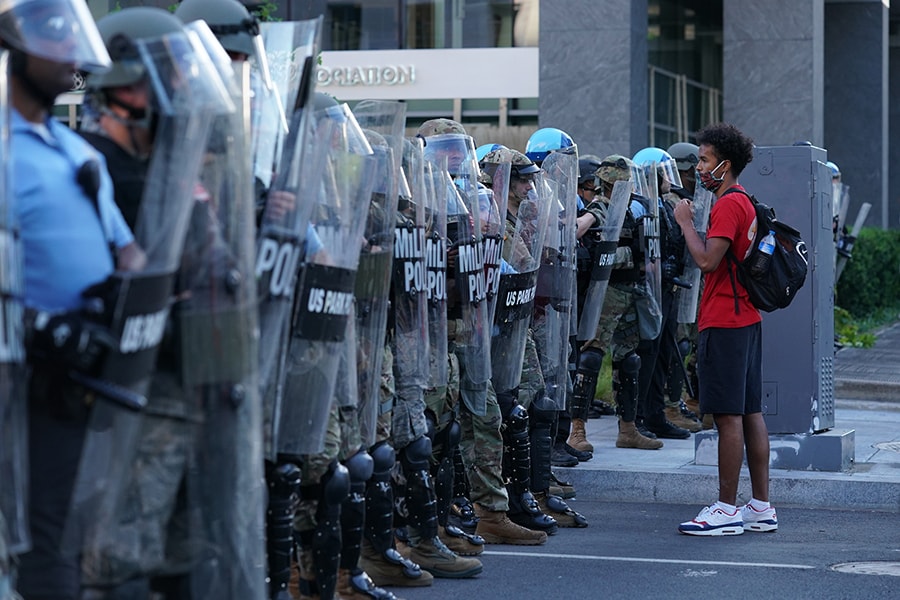
In rare break, some Republicans reject Trump's harsh response to unrest
The day after Trump threatened to unleash the US military to rout protesters, the reactions of Republicans underscored the politically precarious choice months before the November elections
 Protests near the White House in Washington, on Monday, June 1, 2020. The president spoke from a White House beset by protesters, and then walked along a path cleared by police to briefly visit a damaged church
Protests near the White House in Washington, on Monday, June 1, 2020. The president spoke from a White House beset by protesters, and then walked along a path cleared by police to briefly visit a damaged church
Image: Erin Schaff/The New York Times
WASHINGTON — In a rare break with President Donald Trump, multiple Senate Republicans on Tuesday faulted his response to civil unrest around the nation, rejecting his move to crack down on demonstrators and rushing to express sympathy with black Americans who have taken to the streets to protest police brutality against them.
The day after Trump threatened to unleash the U.S. military to rout protesters around the nation, the reactions of Republicans — some condemning the president directly, others carefully suggesting that they held a different view — underscored the politically precarious choice they face between endorsing the president’s divisive approach or breaking with him and risking a party backlash just months before the November elections.
“There is no right to riot, no right to destroy others’ property and no right to throw rocks at police,” Sen. Ben Sasse, R-Neb., said in a statement. “But there is a fundamental — a constitutional — right to protest, and I’m against clearing out a peaceful protest for a photo op that treats the word of God as a political prop.”
Sasse was referring to the remarkable spectacle that unfolded Monday evening when police fired flash-bang explosive devices and tear gas and used officers on horseback to drive away peaceful protesters outside the White House. Minutes later, Trump strode out and marched across Lafayette Square to brandish a bible outside St. John’s Episcopal Church, which had been damaged in a fire during unrest the night before.
Sasse’s comments echoed those of Sen. Tim Scott of South Carolina, the only black Republican in the Senate, who denounced the move in unequivocal terms during an event hosted by Politico.
©2019 New York Times News Service
 President Donald Trump walks to St. John's Episcopal Church, surrounded by security forces, from the White House in Washington, Monday, June, 1, 2020, for a photo opportunity. The death of George Floyd, an African-American man, in police custody, has ignited protests across the country
President Donald Trump walks to St. John's Episcopal Church, surrounded by security forces, from the White House in Washington, Monday, June, 1, 2020, for a photo opportunity. The death of George Floyd, an African-American man, in police custody, has ignited protests across the country A protester stands near a police barricade in Washington, near the White House, on Monday, June 1, 2020. The president spoke from a White House beset by protesters, and then walked along a path cleared by police to briefly visit a damaged church
A protester stands near a police barricade in Washington, near the White House, on Monday, June 1, 2020. The president spoke from a White House beset by protesters, and then walked along a path cleared by police to briefly visit a damaged church



